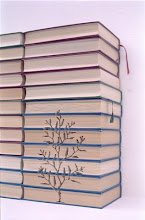I did something after I placed the book on my small stack of read books that was kind of stupid. I know myself fairly well at this point in my life. I’m sure I will look back at forty and laugh at my seeming self-awareness in my twenties, but one thing I won’t ever be able to deny is how I know, and always have known, how fearful I am. I am very quickly and suddenly terrified: by visual images, scary sounds, the idea of eternity, certain astronomical discussions, any theme of apocalypse, and most definitely creepy children. I don’t even want to talk about that scene in The Ring where the little girl crawls out of the television because OH MY GOD NOW I AM THINKING ABOUT HER GREY, DRIPPING SKIN AND AM GOING TO HAVE NIGHTMARES FOR DAYS!
Thanks a lot.
But after reading the last few paragraphs of the last chapter, I became curious:
At some point during this week, he tore the final page from Louis L’Amour’s memoir, Education of a Wandering Man. On one side of the page were some lines L’Amour had quoted from Robinson Jeffer’s poem, “Wise Men in Their Bad Hours”:
“Death’s a fierce meadowlark: but to die having made
Something more equal to the centuries
Than muscle and bone, is mostly to shed weakness.
The mountains are dead stone, the people
Admire or hate their stature, their insolent quietness,
The mountains are not softened or troubled
And a few dead men’s thoughts have the same temper.”
On the other side of the page, which was blank, McCandless penned a brief adios: “I HAVE HAD A HAPPY LIFE AND THANK THE LORD. GOODBYE AND MAY GOD BLESS ALL!”
Then he crawled into the sleeping bag his mother had sewn for him and slipped into unconsciousness. He probably died on August 18, 112 days after he’d walked into the wild, 19 days before six Alaskans would happen across the bus and discover his body inside.
One of his last acts was to take a picture of himself, standing near the bus under the high Alaska sky, one hand holding his final note toward the camera lens, the other raised in a brave, beatific farewell. His face is horrible emaciated, almost skeletal. But if he pitied himself in those last difficult hours—because he was so young, because he was alone, because his body had betrayed him and his will had let him down—it’s not apparent from the photograph. He is smiling in the picture, and there is no mistaking the look in his eyes: Chris McCandless was at peace, serene as a monk gone to God.
I have to find that picture, I thought, as I tentatively opened my web browser and typed “Chris McCandless photos” into google image search. This is the fifth image that came up, and it is the abovementioned picture:
I thought about that picture all day yesterday, all while writing this review, all throughout breakfast and watching a recorded episode of The Colbert Report. There is something about that picture that scares me. Undeniably. I’m not afraid to admit it. It’s visually frightening: the gaunt face, the hair, the clothes, the legs that seem to not exist underneath the spaceless khakis. But more haunting than anything is his smile. He’s smiling. He knows he’s dying, he detailed it in his journal, he wrote a note for immediate help acknowledging that he was near death, and yet he was smiling. It haunts me that, even in the last moments, even when he knew that he had made a mistake and that this journey had led to his death, he did not waiver. He smiled. He smiled because he knew that he had lived a life that, to him, had the most meaning possible. It’s not my meaning. It’s most likely not yours. And he was undeniably an idiot for at least not taking basic supplies like a machete and a compass and some decent hiking boots. But it was his life, and he lived it the way that he wanted to. Entirely. How else could a person smile when they know they are hours from death? I think the debate over Chris McCandless’s life and death comes from the fact that these ideas of beauty and truth are entirely subjective. What was Chris’s truth is not everyone’s. But I don’t think anyone would disagree with the statement that they would feel incredibly fortunate to be able to know in the end that they lived their respective lives with as much beauty and truth as they could grasp.


Word. I loved this book, in a haunting kind of way. I found it funny (kind of) that, by the end of the book, I felt like I should feel sorry for him, but I didn't, because he didn't feel sorry for himself. It also really appealed to the manly (what little there is) side of me that wants to say, "Fuck this, I'm going off into the woods to live free from all this modernized shit!" Loves :-)
ReplyDelete